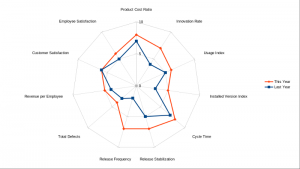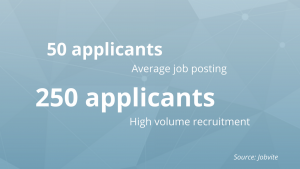The ultimate test of a company’s ability to adapt this year lies in how well its team and operations adjust to a remote work model, especially if the shift from office to remote was an unexpected occurrence much like the majority of cases this year.
For recruitment agencies, the challenge extends to cover anxious clients and wary candidates, a combination of uncertain elements that can make day-to-day work difficult. To that end, we’ve opted to discuss how recruitment CRM streamline operations for companies shifting to a remote work model.
Centralizing data & easy software integration
As a recruitment agency shifts its operations to a remote model, the need for multiple software solutions might become overwhelming. Prior to the remote craze that seems to be here to stay, recruitment agencies were, and still are, able to increase their productivity levels, centralize recruitment data, and put innovative tools to use in order to maximize efficiency and minimize repetitive, menial tasks.
On a remote work model, the need for recruiting software is even greater. With physical proximity no longer playing a part in team communication, it falls to software to pick up the slack.
Project and campaign data must be readily available to every recruiter on the team at any given time. The more organized and centralized the information is, the easier your recruiter’s day will be.
But your recruiters aren’t the only team in need of such software assistance. Your sales and support teams, the customer-facing individuals, need client data just as much as recruiters need their candidate data.
This is where recruitment CRM software comes in.
Recruitment CRM tools centralize client data and create in-depth profiles for each one. Beyond that, it’s a very handy and easy-to-use tool to keep track of each campaign and its progress. This is especially useful to campaign managers who might not be deeply involved in the recruitment tasks but are still in charge of presenting the client with regular updates.
In fact, depending on the software you choose, the platform can be utilized for client updates and eradicate the time needed to create elaborate powerpoints and colorful slides. This is why it’s important your recruitment CRM of choice can be integrated with other software solutions. If you already have an applicant tracking system, you should choose a CRM that can be connected to it so that your recruitment data is easily migrated.
On the other hand, headhunting agencies can opt for recruitment software that offers both ATS functionalities and recruitment CRM tools.
Cloud-based access
Working remotely translates to a measure of inconsistency in terms of the devices your team members use, their locations, and how well they can access information remotely. In order to eradicate any possibility of restricted access, relying on delayed colleague emails, or going through a chat history looking for a specific link, companies can choose to centralize all relevant data on cloud-based solutions. This makes distance a very trivial matter and accessibility is no longer an issue.
In fact, depending on the recruitment software of choice, you can set access levels for different employees so that each can only see the data that they need.
Customer relationships: Leads to clientele
Converting a potential lead to a recurring client is no easy feat. But it is one of the most important tasks for any recruitment agency. This is one aspect of a company’s operations that requires attention to detail, a sense of social professionalism, the ability to relate to clients, and of course, a pitch-based sales skill set.
All of these traits often pay off when your sales team focuses on two elements: trust and transparency.
You can establish trust by getting to know the client on a deeper level than the transactional. What this means is that you must do your homework long before you attempt to convert them. Generally speaking, companies place their trust in recruitment agencies that display intricate knowledge of their industry for the talent that is most sought after by competitors as well as the sector as a whole.
Displaying that you understand the client’s professional landscape, both in terms of talent demand, and competitive advantage helps establish rapport built on the mutual understanding that both entities are on the same page regarding recruitment needs.
In order to maintain established trust, it’s imperative that information collected during the conversion stage, from the client’s recruitment needs to their preferred method of communication, is all stored on your recruitment CRM.
Such intricate behavior and business details are very important for the team to remember and leverage in future communication with the client.
In terms of transparency, recruitment CRM makes it very simple and easy to provide clients with a clear overview of their recruitment campaign and the progress that’s been made.
It’s an investment, that much is certain. But in a world where the remote work model is slowly becoming the dominant presence in business, it’s important to focus on your team’s most dire needs as well as the perfect process to handle client relationships. A recruitment CRM can eradicate a lot of the difficulties surrounding customer relationships and provide your team with the ideal digital environment to excel.
Click here to explore our 14-day free trial.
Business & Finance Articles on Business 2 Community
(54)
Report Post




